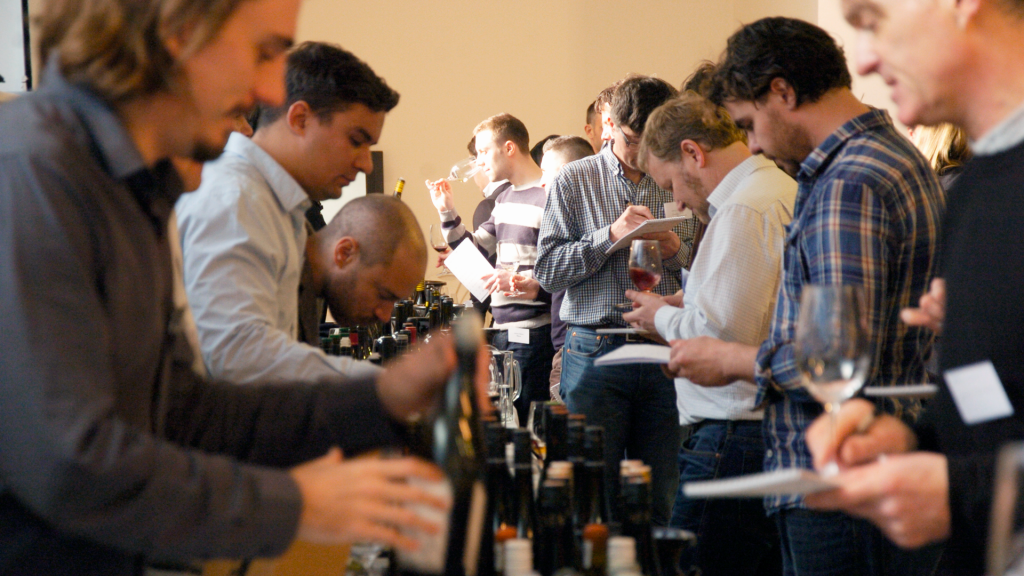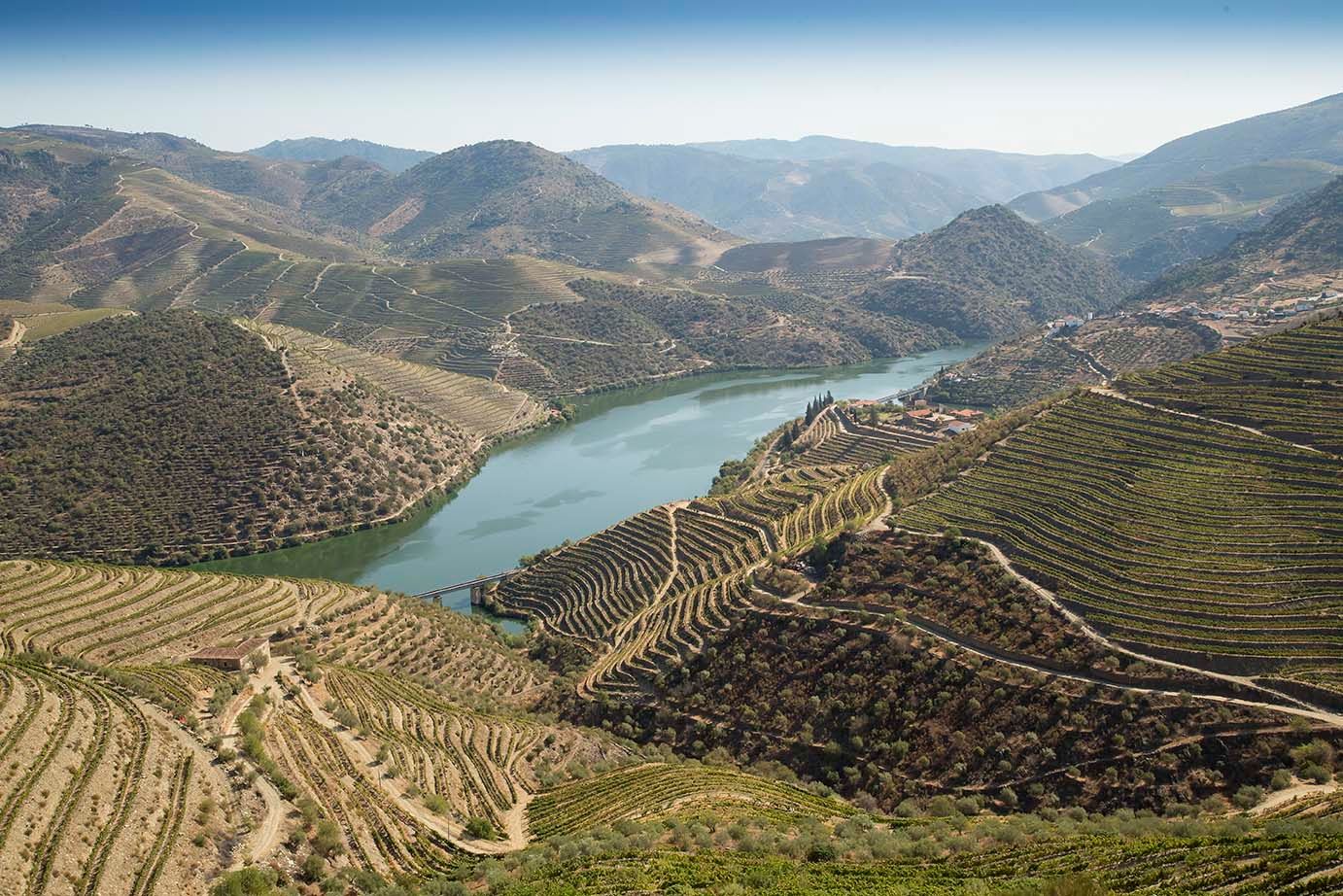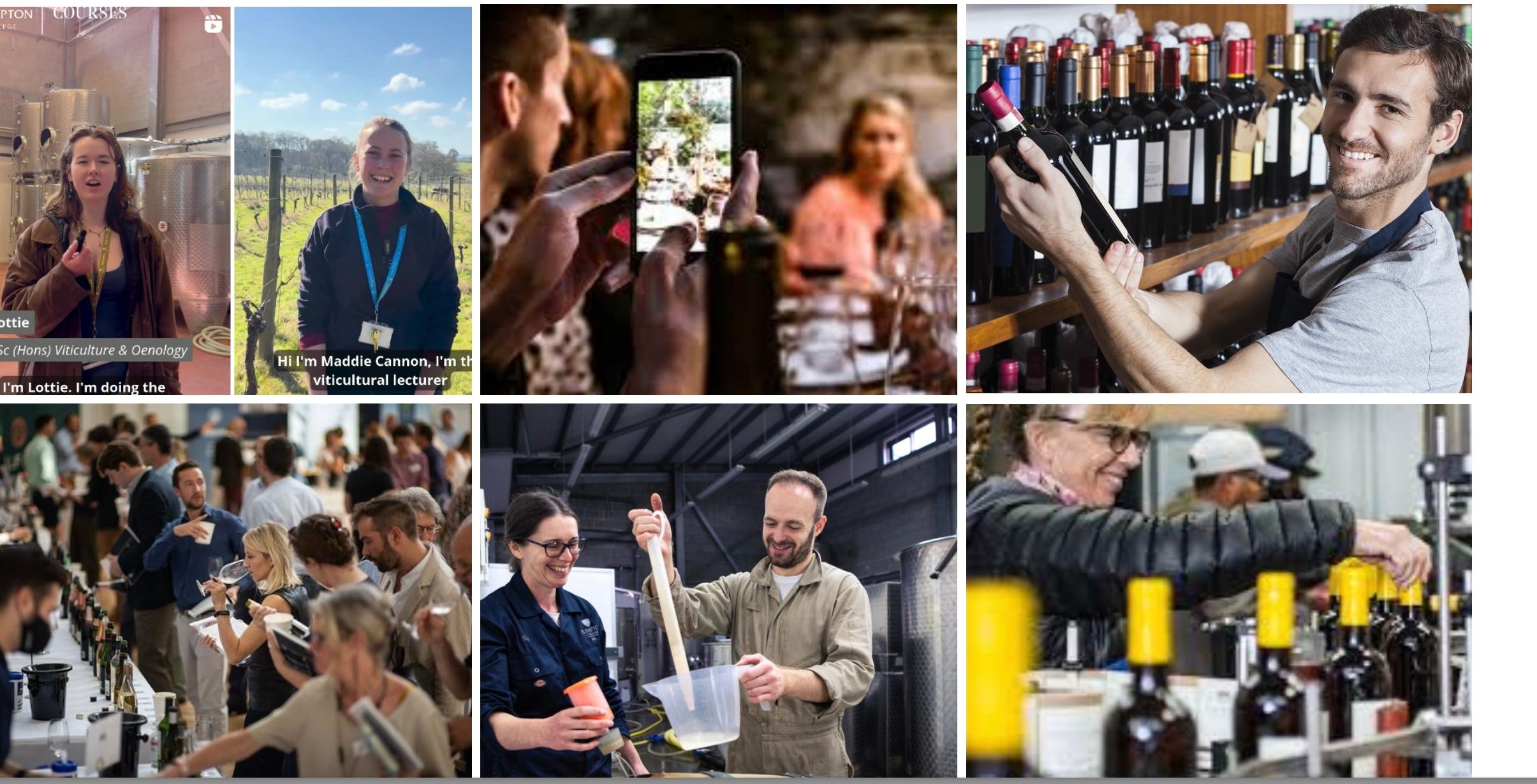Artisan wine producers across Europe and beyond have a lot to thank Ben Henshaw and his team at Indigo Wine for giving them a highly influential platform in the UK premium on-trade.

Ben Henshaw: champion of artisan wine producers
It is indicative of how fast the UK on-trade is changing that a business like Indigo Wine can in a matter of five years, go from being a relatively under the radar wine importer, to evolve in to a major influencing factor on the style of wines now being listed and sought after by the sector’s most discerning on-trade buyers.
The post recession world we live in has opened the doors for producers and suppliers alike to push the boundaries a little more of what sommeliers and buyers are likely to buy for their lists.
The demands and needs of their customers has also changed. They, too, have come out of the recession, more aware of how much money they have in their pocket, yet more adventurous in where and how they spend it.
The average restaurant diner is so much better informed about the kinds of wines they like, and are actively seeking out restaurants and bars that place as much focus on their wines as they do the food coming out of the kitchen.
Henshaw was himself one of those type of diners. His previous career was in sales of major publishing houses, including Time Out where he enjoyed a stint in Hong Kong trying to convince restaurants and hotels to advertise in the publication. An already keen amateur’s interest in wine started to become more of a serious interest.
“I start to be exposed to much better food and wine and I got caught the bug to buy better wine,” he recalls.
A couple of WSET courses later and Henshaw was keen to do something for himself in wine. Particularly as his parents just happened to own a vineyard in the south of France.
Exceeding expectations
Ben Henshaw admits the growth in Indigo Wine has taken him a little by surprise. “I have certainly exceeded my expectations in terms of the type of producer we are working with. Particularly from Spain where I am very proud of the portfolio we have built up. We are getting more important agencies to work with.”
Henshaw believes the big change in the market over the last three to four years has been a greater acceptance from key restaurant buyers that there is a place for more esoteric, artisan wines.
He explains: “We are also a lot more confident that there is a market for the style of wine we are bringing in. At first it was difficult. I wouldn’t say we were trend setting, but we were certainly on trend when it came to working with artisanal and natural winemakers.”
But it is one thing having the right wines on your list, you then need to find the place to sell them and it is here where Indigo, along with the likes of other relative newcomers like Red Squirrel Wine, and established competitors such as Les Cave de Pyrene, have been able to focus their resources.
It has not been easy, though, stresses Henshaw. “At first it was a little difficult to convince some buyers of these types of wine, but now I think they expect them and they certainly expect them from us. But it is still a niche market and it is certainly more challenging outside of London and the South East for these styles of wine.
It is also not easy keeping ahead of the wine curve, with a small team and limited budget.
“We try and remain fresh and interesting in the wine we are bringing in. But it’s hard work and you have to be careful as it can take six months to establish a new wine. You have to be business like in you decision making. It is, though, what we do. I think too many wine companies play it too safe.”
It is why he admires restaurants and bars outside of London, for being brave enough to base their wine lists on artisanal and natural wines.
“It is a lot more challenging outside London and I really respect the bars and merchants that are taking them on say in Cornwall or Liverpool. It is very brave,” he says.
Kindred spirits

Leading wine merchants outside of London, like Manchester’s Hangingditch, deserve great credit for their ambition, says Henshaw
But when they do hear of these type of outlets opening up, he admits it feels like they are “kindred spirits”.
“We are building customers around the country, particularly in the west around Bristol and in Manchester and Liverpool.”
He admits he would be disappointed if they did not consider Indigo Wine as a potential supplier. “We would not be doing our job properly if we were not on their radar,” he says.
“There are, after all, only about two handfuls of suppliers that are supplying these type of artisanal wines and are focused in this way.”
Hence the pressure to keep on looking and testing themselves to find new wines and areas to bring in.
Artisan is here to stay
Henshaw is also quite sure the whole interest in artisan wine is not a fad. In the same way our attraction to craft beer and other products with provenance and heritage is not an here today, gone tomorrow phenomenon.
“In France they have been doing this for years. Instead they are called vignerons,” he adds. “There is still very much a trend for craft products and artisanal wine really fits in to that.”
Henshaw says it can be hard to really pinpoint what artisanal wine actually means, but he has a go: “It is doing things by hand, in a traditional way where 70% to 80% of the focus is what happens in the vineyard and not in the winery.”
For Henshaw they are more like farmers than standalone winemakers.
It is how the wines are made in the vineyard that also most interests Henshaw when sourcing wines to buy. For example, he talks about a recent visit to Switzerland where the winemaker did the tasting amongst the vines and not in the cellar. A little touch that went a long way in helping Henshaw understand that winemaker’s philosophy.
“For him the cellar was the least important thing.”
It’s an approach he comes across time and again when sourcing wine in Spain. “These are the type of people we like working with,” he says. “What better than a cold bottle and a few glasses to taste when actually out in the vineyards.”
When the focus is all on the cellar then Henshaw and his team are more likely to be less interested in what that cellar produces. “It’s a lot easier to show ego with equipment,” he says.
Going direct
Indigo’s route to market is straightforward enough in London where it has direct relationships with most of its on-trade customers and restaurants.
Whilst a large amount of business comes from individual restaurants it is also doing more work with bigger groups and chains. But admits it is not an “easy market” to work in with so much more of the focus on price.
The Michelin star restaurant scene is also “a hard market to crack” as the buyers have such “high expectations”.
But equally their demands are helping its business grow by being able to offer more support, training and bespoke trips to wineries.
“It is one thing getting your wines on the list. It is another getting them to sell, which is why we work hard to get them on by the glass,” he explains. “Not all weird and wonderful wines are easy to sell, but we are committed to those producers.”
Which all comes back to the wines it sources and lists itself. “They all have to be able to offer great value as well,” says Henshaw.

Wine driven new openings like the Quality Chop House has made a big difference to the likes of Indigo Wine
As for London as a whole it is the east where most of the growth is coming from, he argues. Then it is parts of south London, particularly around Southwark, Bermondsey and over in to Clapham and Battersea.
“But there are now so many more wine focused venues opening up which is great news for us. Places like the Clove Club or the Quality Chop House.”
Outside of London it is much more reliant on working with local wholesalers or independent wine merchants to wholesale the wines for them.
“We would love to do more outside the south east and London and develop stronger relationships say in the north,” admits Henshaw.
Indigo also runs a consolidation service for wines from Spain where it is happy to team up with other importers, mostly independent merchants, to build up pallets of wine to ship back as one to the UK. “The saving are significant to make it worthwhile,” he adds.
“It also brings our customers closer to the growers they are working with.”
Indigo has now grown to such a size that it puts on regular buyer visits and tours to key wine producing areas around Europe. Another good way of building loyalty and having closer relationships with its customers, says Henshaw.
Stretching its wings

Mother Rock wines are the result of a collaboration with Swartland winemaker, Johan Meyer. Picture: Teratogena.wordpress.com
Indigo is even putting its money where its mouth is by getting involved in some small wine producing projects. Mother Rock wines would be the most significant to date where Henshaw has teamed up with Johan Meyer, a winemaker in Swartland, South Africa, togrow and market wines from there.
First up has been a Chenin Blanc, made from some of the best grapes across the Cape, which comes under the Force Majeure label. This has been followed by a Cinsault Rosé and a red blend made up of Syrah, Pinotage, Grenache, Cinsault, Carignan and Mourvedre.
Henshaw positively glows when talking about it. “They are such great people to work with and the wine scene there is also so exciting.”
With a business hat on it is also a less risky place to invest thanks to the strength of sterling, still, over the South African rand, he concedes. “The potential there is amazing,” he says.
Collaborating with like-minded importers
Indigo Wine is also keen to collaborate with other like-minded importers in the UK to host tastings and events where they can showcase the wide range of wines they are collectively bringing in to the country.
Last September, for example, it ran the successful new wave tasting of winemakers from South Africa.

A new dedicated London tasting to showcase artisan producers from Australia, part backed by Indigo Wine
It now hopes to do the same with others importers for Australia with the Artisans of Australian Wine tasting. “Arguably there is a little more work to be done in promoting those wines,” he says.
The tasting, which is being event organised by Wine Australia, certainly promises to be edgy enough as it is taking place in a nightclub in Shoreditch. “We want to give it the right vibe and feel,” he explains.
It is also a proud member of the Dirty Dozen group of like minded suppliers and will be taking its rightful place at the group’s next main trade tasting on September 27.
It is not, stresses Henshaw, some sort of buying group, but more a chance for them to network and share ideas and intelligence gleaned from working in the same area of the wine market. “We like to think it is now one of the best tastings of its type that happens every year.”
With so much going on it is easy to see why Henshaw says Indigo will be taking a break from its own portfolio tasting in 2017. But instead is again looking to collaborate with others with a specialist artisan tasting on Spanish wines in February next year where it hopes to have 30 to 35 growers present.
“We want to latch on to the fact that Spain has such great terroir. It is phenomenal what is going on there.”
He concedes some of the major generic bodies might feel the likes of Indigo are stepping on their toes holding such events. “But hopefully they can recognises we are not trying to take over what they do, but instead take a things in to our own hands more to showcase these kind of wines.”
Henshaw is also confident these are the kind of tastings that the key on-trade buyers want to attend. “They know they can come to what will be a very focused tasting. They are getting more value, particularly if we can get the producers over.”
To the future
As for the future of Indigo? Well the business has now grown to an eight-strong team which is giving it the breadth and opportunity to take on more wines and customers. But Henshaw is also very aware of not trying to expand to quickly. “We have to get that balance right. But I am really happy with our team and we have a structure in placethat allows me to take a bit of a step back and look at ways in which we can develop further.”
Which potentially means exploring new countries like New Zealand. So if you are a Kiwi artisan wine producer you heard it here first.









































